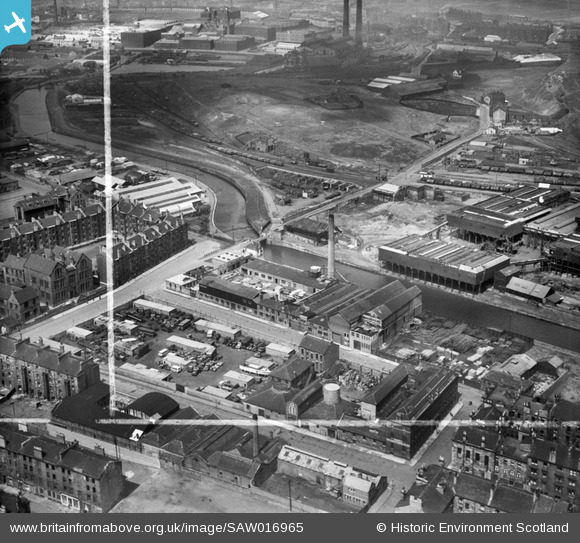 2ndWW Type 11 cab CMP vehicle. |

redmist |
Wednesday 6th of January 2021 09:25:03 PM |
 Army surplus vehicle yard. |

redmist |
Wednesday 6th of January 2021 09:23:38 PM |
 AEC Matador 4x4 tractor (early version)
The AEC Matador 4x4 tractor first appeared in 1939, and was built to a War Office specification to tow 4.5-in (114-mm), 5.5-m (140-mm) and 6-in (152-mm) howitzers. The requirement was for a four-wheel tractor with seating for the crew and ammunition stowage. The early production vehicles had a flat cab roof which differed from later production trucks, those having a gently curved cab roof.
|

Billy Turner |
Tuesday 23rd of February 2016 02:12:28 PM |
 Canadian Military Pattern truck.
What's it doing here in this yard? There's at least another 3 of them in the yard.
The Canadian Military Pattern (CMP) truck was a class of military truck - of various forms - made in large numbers in Canada during World War II to British Army specifications for use in the armies of the British Commonwealth allies. Standard designs were drawn up just before the beginning of the war.
CMP trucks were also sent to the Soviet Union following the Nazi invasion, as part of Canada's Gift and Mutual Aid program to the Allies. During the War CMP trucks saw service around the world in the North African Campaign, the Allied invasion of Sicily, the Italian Campaign, the Soviet Front, the Burma Campaign, the Battle of the Philippines (1941–42), the liberation of Northwest Europe, and the Western Allied invasion of Germany. CMP trucks also saw service in post-war conflicts in Indonesia, French Indochina, and the Portuguese colonies in Africa. |

Billy Turner |
Wednesday 11th of November 2015 09:23:55 PM |
 St Rollox Flint Glass Works, No 76 Kennedy Street, Glasgow This works was founded in about 1838 by Cochran & Couper to make table glass. Latterly it had two small glass cones, which had both been cut down in height. These structures acted as chimneys for the glass furnaces, the draught air also cooling the glass blowers who worked round the furnaces. This shows the eastern cone and its house from the south. The other is to the left of the two-storeyed block on the left. In 1964 this part of the works was used as a motor repair workshop by Shearer & Scott Ltd, whose office was in the base of the cone. The Cochran of the founding partnership was probably related to the Cochran of Kidston, Cochran & Co, who rebuilt the North Woodside Flint Mill in about 1846. The St Rollox works was demolished in 1966 to make way for a road improvement scheme. Source: RCAHMS contribution to SCRAN. |

Billy Turner |
Tuesday 10th of November 2015 09:18:15 PM |
 Sign reads Rowat's The Grocer Supply Co. Ltd |

Billy Turner |
Tuesday 10th of November 2015 08:48:05 PM |
 Kennedy Street Primary School (now demolished). This school was built for the Glasgow School Board in 1875 on the north side of Kennedy Street, to the east of the Sun Foundry and the city's fever hospital.
In 1880 the school had 869 children on its register but the average attendance was only 602, at a time when high absentee rates were common in Glasgow. In 1885, however, it was one of thirteen Board schools selected to provide secondary education to pupils who had been awarded bursaries.
|

Billy Turner |
Monday 9th of November 2015 09:12:34 PM |
 Pinkston Power Station |

cell |
Sunday 23rd of June 2013 04:53:32 PM |











![[SAW016965] Glasgow, general view, showing A and G Paterson St Rollox Sawmills and Monkland Canal. An oblique aerial photograph taken facing north. This image has been produced from a crop marked negative.](http://britainfromabove.org.uk/sites/all/libraries/aerofilms-images/public/100x100/SAW/016/SAW016965.jpg)
![[SPW042523] St Rollox Chemical Works and A and G Paterson St Rollox Sawmills, Glasgow. An oblique aerial photograph taken facing north.](http://britainfromabove.org.uk/sites/all/libraries/aerofilms-images/public/100x100/SPW/042/SPW042523.jpg)
![[SPW042524] St Rollox Chemical Works and A and G Paterson St Rollox Sawmills, Glasgow. An oblique aerial photograph taken facing north-east.](http://britainfromabove.org.uk/sites/all/libraries/aerofilms-images/public/100x100/SPW/042/SPW042524.jpg)
![[SPW042525] A and G Paterson St Rollox Sawmills and St Rollox Chemical Works, Glasgow. An oblique aerial photograph taken facing north.](http://britainfromabove.org.uk/sites/all/libraries/aerofilms-images/public/100x100/SPW/042/SPW042525.jpg)
![[SPW042526] St Rollox Chemical Works and A and G Paterson St Rollox Sawmills, Glasgow. An oblique aerial photograph taken facing north.](http://britainfromabove.org.uk/sites/all/libraries/aerofilms-images/public/100x100/SPW/042/SPW042526.jpg)
![[SPW042527] St Rollox Chemical Works and A and G Paterson St Rollox Sawmills, Glasgow. An oblique aerial photograph taken facing east.](http://britainfromabove.org.uk/sites/all/libraries/aerofilms-images/public/100x100/SPW/042/SPW042527.jpg)
![[SAW016963] St Rollox Chemical Works and A and G Paterson St Rollox Sawmills, Glasgow. An oblique aerial photograph taken facing east. This image has been produced from a crop marked negative.](http://britainfromabove.org.uk/sites/all/libraries/aerofilms-images/public/100x100/SAW/016/SAW016963.jpg)
![[SAW016964] St Rollox Chemical Works and A and G Paterson St Rollox Sawmills, Glasgow. An oblique aerial photograph taken facing north. This image has been produced from a crop marked negative.](http://britainfromabove.org.uk/sites/all/libraries/aerofilms-images/public/100x100/SAW/016/SAW016964.jpg)
![[SAW016966] Glasgow, general view, showing A and G Paterson St Rollox Sawmills and Glebe Street. An oblique aerial photograph taken facing south-west. This image has been produced from a crop marked negative.](http://britainfromabove.org.uk/sites/all/libraries/aerofilms-images/public/100x100/SAW/016/SAW016966.jpg)
![[SAW016967] Glasgow, general view, showing A and G Paterson St Rollox Sawmills and St Rollox Chemical Works. An oblique aerial photograph taken facing south. This image has been produced from a crop marked negative.](http://britainfromabove.org.uk/sites/all/libraries/aerofilms-images/public/100x100/SAW/016/SAW016967.jpg)
![[SAW016968] Glasgow, general view, showing A and G Paterson St Rollox Sawmills and Monkland Canal. An oblique aerial photograph taken facing south-east. This image has been produced from a crop marked negative.](http://britainfromabove.org.uk/sites/all/libraries/aerofilms-images/public/100x100/SAW/016/SAW016968.jpg)
![[SPW042528] Glasgow, general view, showing A and G Paterson St Rollox Sawmills and Monkland Canal. An oblique aerial photograph taken facing south-east.](http://britainfromabove.org.uk/sites/all/libraries/aerofilms-images/public/100x100/SPW/042/SPW042528.jpg)
![[SAW016969] Glasgow, general view, showing A and G Paterson St Rollox Sawmills and St Rollox Chemical Works. An oblique aerial photograph taken facing east.](http://britainfromabove.org.uk/sites/all/libraries/aerofilms-images/public/100x100/SAW/016/SAW016969.jpg)





